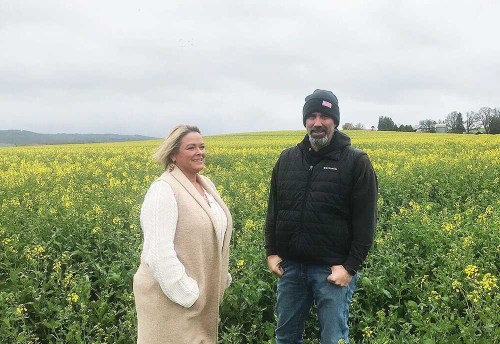House votes to extend Oregon canola limit another year
Published 5:15 pm Wednesday, June 21, 2023
SALEM — Farm regulators would have three months to recommend how to integrate canola with related seed crops in Oregon’s Willamette Valley under legislation approved by the House.
A 500-acre limit on canola in the region would be extended for only another year under the amended version of Senate Bill 789, after lawmakers decided against making the cap permanent as originally proposed.
Trending
“This amendment says, ‘Hey wait, we still haven’t come to a consensus in this state about how and where canola should be grown in the Willamette Valley,” said Rep. Ken Helm, D-Beaverton.
The revised version of SB 789 would give the Oregon Department of Agriculture until Sept. 30 to issue a report to lawmakers on mitigating conflicts between canola and other Brassica crops.
Experts from Oregon State University and farmers who produce canola, specialty seed and organic crops would advise on the recommendations, which may include a public “pinning map” to ensure Brassica crops are grown far enough apart to prevent cross-pollination.
The report may also contain recommendations for geographic or acreage limits on Brassica seed and changes to the ODA’s authority to better regulate the crops.
It’s likely that ODA’s regulatory oversight would be supported by fees paid by affected farmers, rather than regular tax dollars, Helm said.
The bill intends to create a long-term strategy for canola production, which lawmakers have debated for over a decade.
Trending
Up until now, the Legislature has “kicked the can down the road” by renewing the 500-acre limit, initially enacted in 2013 to allow for an OSU study on canola’s compatibility with related seed crops, Helm said.
Opponents of more widespread canola production, including specialty seed companies and organic growers, claim the risks of genetic contamination justify making the acreage cap permanent.
Canola farmers, bolstered by findings in the OSU assessment, argue the crop isn’t any more hazardous than turnips, radishes and other Brassica grown without restriction in the valley.
Rep. Anna Scharf, R-Amity, hopes the stakeholders convened by ODA will act in good faith to come up with recommendations to lawmakers.
A farmer who advocated for the crop long before joining the House, Scharf said she’d be happy if canola were never discussed in the Legislature again.
Canola regulations put forth by ODA in 2019 failed to achieve consensus among stakeholders while earlier rules proposed in 2012 provoked a lawsuit and years of legislative controversy, she said.
“I am, however, optimistic this work group will come to a better coexistence solution and we can finally put this to bed,” Scharf said.
In April, the Senate voted 16-12 for the original version of SB 789 that would have permanently restricted canola to 500 acres in the region.
The sunset would end in July 2024 under the revised version passed 46-4 by the House on June 21, which will now be sent back to the Senate for concurrence.










